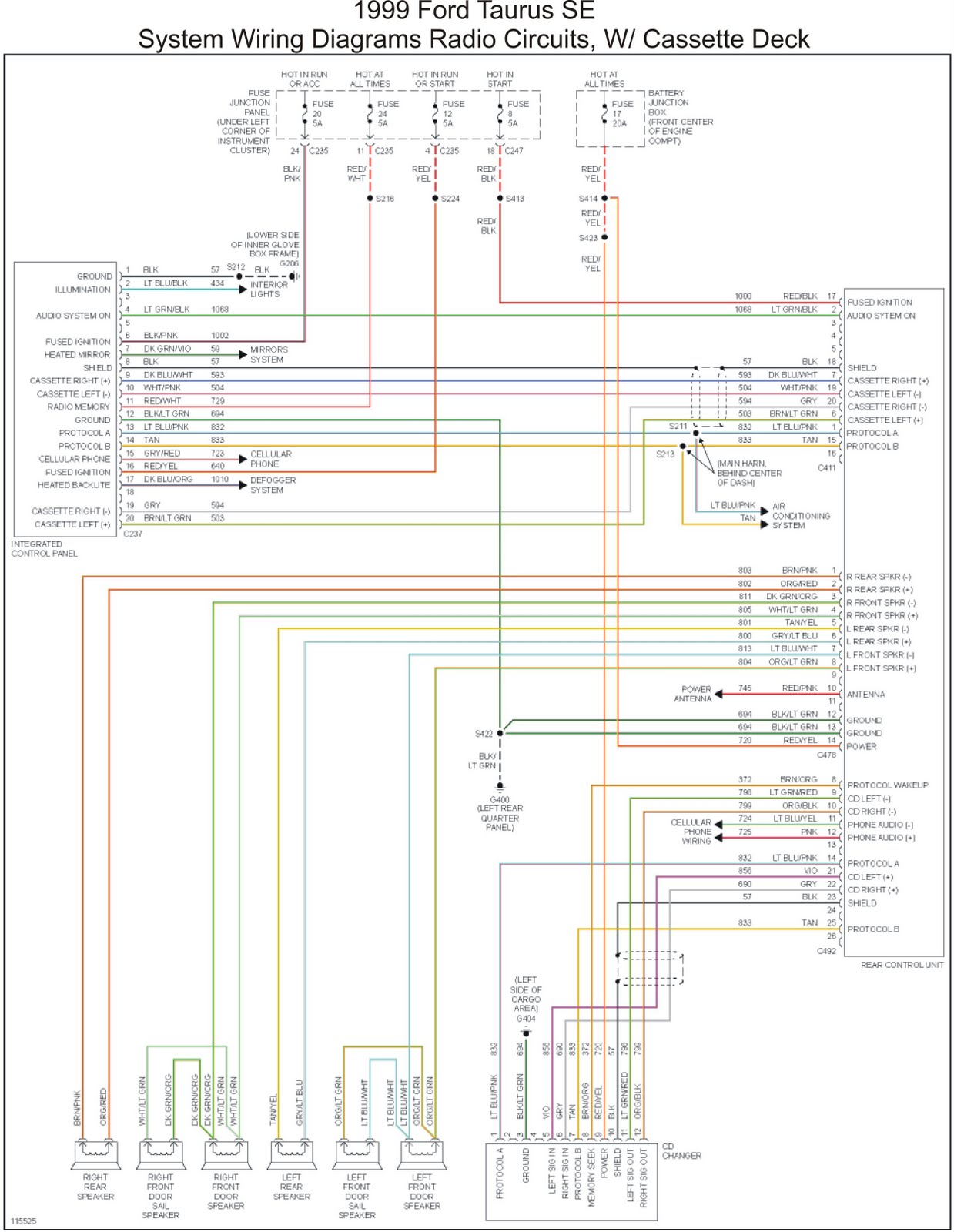Are you looking for a comprehensive guide on Ford Taurus Radio Wiring Diagram? Look no further! In this article, we will delve into the importance of these diagrams, how to read and interpret them effectively, and how they can be used for troubleshooting electrical problems. Let’s get started!
Why Ford Taurus Radio Wiring Diagrams are Essential
Ford Taurus Radio Wiring Diagrams are essential for anyone looking to install, upgrade, or troubleshoot the radio system in their vehicle. These diagrams provide a detailed overview of the electrical connections and components involved in the radio system, helping users understand how everything is connected and how they can make modifications or repairs if needed.
How to Read and Interpret Ford Taurus Radio Wiring Diagrams Effectively
Reading and interpreting Ford Taurus Radio Wiring Diagrams may seem daunting at first, but with a little guidance, it can be a straightforward process. Here are some tips to help you make sense of these diagrams:
- Start by familiarizing yourself with the key symbols and color codes used in the diagram.
- Follow the wiring lines to understand how each component is connected to the radio system.
- Pay attention to the labels and descriptions provided for each connection point or component.
- Refer to the legend or key provided with the diagram to understand any abbreviations or special symbols used.
Using Ford Taurus Radio Wiring Diagrams for Troubleshooting Electrical Problems
Ford Taurus Radio Wiring Diagrams can be invaluable when it comes to troubleshooting electrical problems in the radio system. By following the wiring diagram and tracing the connections, you can easily identify any faulty components, loose connections, or wiring issues that may be causing the problem. This can save you time and money by pinpointing the issue quickly and accurately.
Importance of Safety When Working with Electrical Systems
When working with electrical systems and using wiring diagrams, safety should always be a top priority. Here are some safety tips and best practices to keep in mind:
- Always disconnect the battery before working on any electrical components to prevent the risk of electric shock.
- Use insulated tools and wear appropriate safety gear, such as gloves and goggles, when working with electrical systems.
- Avoid working on electrical systems in wet or damp conditions to prevent the risk of short circuits or electrical hazards.
- If you are unsure about any aspect of the wiring diagram or electrical work, seek professional help to avoid making costly mistakes or causing damage to the vehicle.
Ford Taurus Radio Wiring Diagram
Ford Taurus Radio Wiring Diagrams: Q&A for 2003-2014 Models

Ford Taurus Radio Wiring Diagram | My Wiring DIagram

The Ultimate Guide to Understanding the 2004 Ford Taurus Radio Wiring

1992 Ford Taurus Radio Wiring Diagram

The Ultimate Guide to Understanding the 2004 Ford Taurus Radio Wiring

2003 Ford Taurus Radio Wiring Diagram
